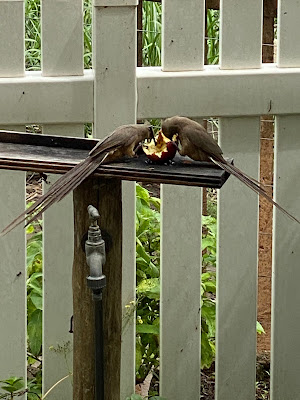Slug, or land slug, is a common name for any apparently shell-less terrestrial gastropod mollusc.
A Slug feeding on a little piece of mushroom I offered him.
Slugs aren't toxic (and are mostly just meat and skin), they in fact have no way of harming you unless you eat them. Considering that you are a rational human being who doesn't put slimy, gross bugs into your mouth, this shouldn't be a problem. It may, however, be an issue for your pets.
Slugs provide a crucial food source for other wildlife (Thrushes just love them!) andmany species are key composters, helping to breakdown decomposing vegetation. Unlike snails, they are not a serious threat to your garden plants, coming out of hiding after dark in search of food, mostly decomposing vegetation as mentioned above. If you have paving in your garden, you will often see the silver, slimy trails they leave behind.
Bread is not actually good for slugs or snails, but she managed to snag this little piece before I could remove it. Please also note that salt is CERTAIN DEATH for slugs and snails, so if you are interested in having these fascinating little creatures in your garden, please do not feed anything containing salt. Thank you.
When in motion, it is about 35 to 50mm (1.5 inches long). Adult slugs overwinter and can lay clutches of eggs when environmental conditions are right. A slug's life expectancy is from 6 - 12 months, according to Google, and some up to 18 months.
Slug eating mushroom — see breathing hole (pneumostome) on right-hand shoulder.
I decided to keep Ms. Slug overnight and after she’d had her fill of mushroom and lettuce, my slug decided to have a nap. However, after about 3 hours she started walking around (or should I say sliding), so I released her back into the garden.
Slugs will sleep on and off for several hours at a time but then might stay awake for 30 hours without a break.
It has been about a week since our first encounter and since then she’s appeared every evening at dusk, snacking on the mushrooms and other vegetables I leave out for her.
Image from Wiki
Close up, admire the telescopic eye and feeler stalks on the head; peer into the large breathing hole, or pneumostome, down the right side of the body (like snails, slugs are not bilaterally symetrical); and admire the rhythmic muscular ripples on its belly as a large, moist slug glides smoothly and effortlessly up a sheet of glass.
::












